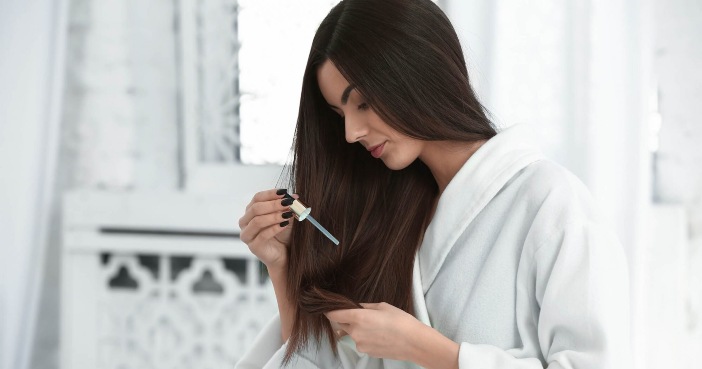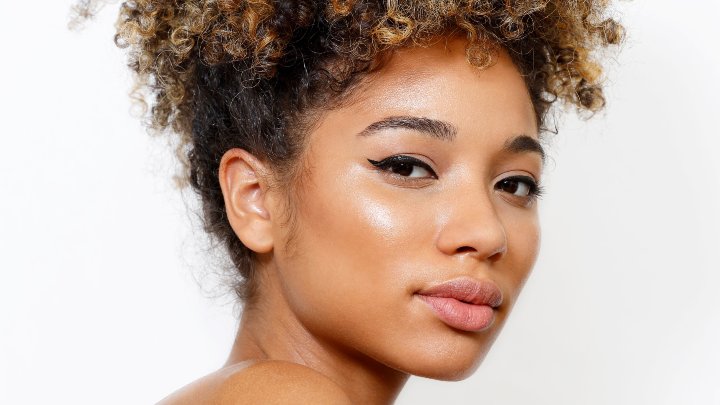Yes, oil does moisturize skin. Moisturizer encompasses occlusive, humectant, and emollient ingredients. Oils may not be all three, but they are great moisturizers.
As the last step of your skincare, the molecules in oils lay over your skin to seal in every other ingredient and keep moisture trapped.
Oils are heavy, that’s true, and if you have oily skin, you should probably just stick with lotions, right? Not entirely. Oils do not only moisturize dry skin, they moisturize every skin type, including your acne-prone skin.
Who would think a great oil could put an end to your acne woes? To enjoy the moisturizing benefits of using oils in your routine, you need to pick the right oil for your skin and even your hair. There is only one way to clear your doubts…continue reading.
Is oil a moisturizer?
Yes, it is.
Face oils moisturize your face, but they are not completely moisturizers and should not replace your moisturizer. An ideal moisturizer contains water and air-tight ingredients that help to trap moisture. Oils are occlusive but do not contain water.
The necessity of water intake cannot be undermined or overemphasized. Water molecules are necessary to keep moisture levels balanced and your skin hydrated.
Oils contain nutrients, but these nutrients are nothing like the actives that moisturizers contain.
While you need the nutrients (essential fatty acids, minerals, and vitamins), the active ingredients in moisturizers are also necessary to improve the health and appearance of your skin.
Moreover, oils are not moisturizers because they only sit on the surface of your skin, unlike moisturizers that can use their water-based formula to absorb into your skin. Also, moisturizers can evaporate off the surface of your skin, but oils cannot.
When compared to a moisturizer, face oil cannot draw water into your skin because it is not a humectant. It can only retain moisture and create a protective barrier over your skin to keep out environmental toxins.
Does oil moisturize or hydrate?
Oils moisturize your skin; they do not have any hydrating properties.
When it comes to conditioning the skin or hair, oils can only retain the already existing water content but cannot add more to it.
However, using oil in your beauty routine can help enhance the effects of humectants in the products earlier applied.
They contain essential fatty acids that create a sealant over your skin. This helps the humectants to penetrate deep into your skin and draw in moisture.
Additionally, rather than hydrating your skin, fatty acids like linoleic acid help strengthen the lipid barrier and fortify your skin against moisture loss.
Does oil moisturize skin?
Yes, it does.
Oils are heavier moisturizers that benefit every skin type. Oily skin is sometimes the end product of excessively dry skin that tried to make up for moisture by producing more oils.
A lightweight, non-comedogenic oil like jojoba oil can mimic sebum and regulate its production. It keeps your skin moisturized and controls oiliness. Oils are equally good for dry and sensitive skin. By keeping your skin moisturized, it controls flaking and dryness.
Moreover, as a moisturizer for dry skin, it can help intercept the manifestation of premature aging, thereby improving the appearance of wrinkles and fine lines.
The right oil can moisturize even sensitive skin and soothe redness, reducing the risk of breaking out with inflammatory acne.
Does oil moisturize lips?
Oils are great moisturizers for the lips.
They are a great remedy for chapped lips. Lip balms made from oils are very moisturizing and help transform dry, chapped lips into a lush pout.
Furthermore, the lips have no oil glands; they are very susceptible to dryness and becoming parched. This is seen on the outside as cracks, peeling, and sometimes sore lips.
The lips are one of the most exposed parts of the body. It is, therefore, prone to moisture loss due to the action of the elements on the skin.
Oils like olive oil and coconut oil nourish, heal, and moisturize the skin on your lips which is very tender.
Does oil moisturize scalp?
The right amount of oil can be the blessing your scalp needs.
The moisture boosts oils provide on your scalp can help stimulate your hair follicles to produce thick, healthy hairs.
Applying oils to the scalp delivers essential fatty acids and other nutrients which help to nourish your scalp.
A well-nourished scalp can retain moisture better and improve hair growth. Using a moisturizing oil on your scalp also keeps it hydrated and prevents dandruff.
Does oil moisturize hair?

Applying oil to your hair keeps your strands moisturized and protected against frizz and the various environmental factors that can damage your hair.
Moisturizing oils penetrate your hair shaft and keep moisture locked in. Also, it helps to revive dehydrated strands, thereby preventing brittle strands, which can progress into hair breakage. The moisture trapped in hydrates your hair and adds a natural glow to your strands.
Hair oils should, however, be used sparingly. Too much oil in your hair will weigh down your strands instead of moisturizing them.
Is oil better than moisturizer?
No, it is not.
A moisturizer is also not better than face oil. Both products are different from each other and perform different functions. Oils and moisturizers help to moisturize your skin at different steps of your routine.
More so, you cannot ditch one for the other because oils boost the moisturizing and hydrating properties of a moisturizer. Also, underneath face oil, a moisturizer draws water molecules from the atmosphere to plump skin cells.
Both products are necessary for the overall health and texture of your skin. They work in tandem to improve skin complexion and give you glowing skin.
Is oil better than lotion?
Lotions are moisturizers that contain both oil and water. Oils are purely oil-based moisturizers.
Both products play key roles in moisturizing your skin. Oils can do extra because they are a little more concentrated than lotions.
In addition, they contain nutrients that help to strengthen the skin barrier. Moreover, they are purely natural when compared to lotions that contain fragrance and other additives.
However, oils are not better moisturizers than lotions. They lack humectant properties, which are necessary to attract water molecules to the skin. Lotions are great for every skin type and do not feel heavy on the skin.
Rather than a comparison, you can have both products in one routine and either layer or mix them.
FAQs
Can you mix oil with moisturizer?
Yes, you can.
You can add a few drops of oil to your moisturizer to boost hydration. Mixing oil and moisturizer is a great option if you use essential oils in your routine. It can help reduce possible irritations using essential oils come with.
Is oil enough to moisturize your skin?
The degree of moisture your skin needs depends on your skin type.
Oils alone may be enough to moisturize oily skin in summer. Dry skin, on the other hand, will need more than just a face oil to stay moisturized.
Can you use oil to moisturize your face if you have acne?
Yes, you can.
It may sound counterintuitive to apply face oil to your skin when you already have acne but how you use it determines whether it will worsen acne or not. Facial oil for acne should be non-comedogenic and lightweight.
Moreover, use oils that can address other skin concerns and use them sparingly. That way, the oil effectively controls and manages acne breakouts.
Conclusion
Oils form an integral part of moisturizing your skin. They may not do it all because they are not humectants, but they are reliable for a moisture boost. As an occlusive, oils create a protective film over your skin and prevent moisture loss.
Oils moisturize every skin type and hair type. Any beauty routine devoid of a moisturizing product scarcely amounts to anything. Moisture is like a sieve that retains the good and helps to keep the bad at bay.
With oils, there is a caution- they are heavy and have great tendencies of leaving build-up. Therefore, you should use them on your skin and hair sparingly.
Thanks for reading.
Find more helpful beauty tips here on MBGON.
